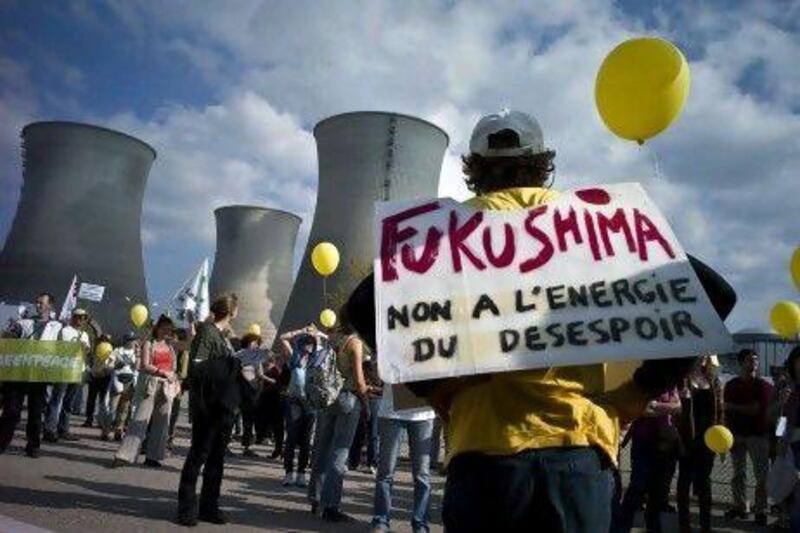PARIS // The backlash against nuclear power could impede the fight against climate change, warns the International Energy Agency (IEA).
Public fears about atomic energy after the accident at Japan's Fukushima Dai-Ichi power plant prompted Japan, Italy and Germany to cancel plans for new reactors or accelerate the shutdown of existing ones. The IEA says that poses a danger to plans to keep emissions in check, particularly for member countries of the Organisation for Economic Co-operation and Development, where nuclear power accounts for more than half of all low-carbon power.
"There's a potential threat to decarbonising the carbon systems, and it may have an effect on the security of supply if investment in nuclear is not compensated for in other electricity generation," said Didier Houssin, the director of energy markets and security at the IEA, the organisation in Paris that represents the energy interests of 28 industrialised nations. Among them are the three that have renounced nuclear power.
Germany has said that it may need to extend the life of its ageing coal-fired plants to make up for the loss of nuclear energy. This week, Miguel Sebastian, the industry and trade minister of Spain, said his country needed to develop the coal resources inside its borders.
"If we are to lessen our use of nuclear, we must of course think carefully about the consequences for efforts to address the twin challenges of energy security and sustainability," said Martin Ferguson, the Australian energy minister. "If you walk away from nuclear as a resource, what will it be replaced by?"
Today nuclear reactors produce 14 per cent of the world's power, and nations including Saudi Arabia and the UAE are looking to build their own plants. Part of the drive for nuclear stems from targets to cut emissions, which scientists say are needed to keep the global temperature rise to under 2°C and avoid the worst effects of climate change.
Nuclear energy, although under public scrutiny for its safety risks, is considered by some a clean energy because it does not emit greenhouse gases as coal, diesel and natural gas do when burnt. But the question of how to store the radioactive waste over the long term has yet to be answered.
The temporary nature of nuclear waste storage came into the spotlight in March, when an earthquake and tsunami sparked a reactor meltdown at Japan's Fukushima Dai-Ichi plant and crippled the cooling ponds that store spent fuel.
Abu Dhabi has embarked on a US$20 billion (Dh73.46bn) nuclear programme to meet its growing energy needs while keeping emissions in check. Four reactors are scheduled to come online between 2017 and 2020, and are expected to provide up to a quarter of the emirate's electricity.





